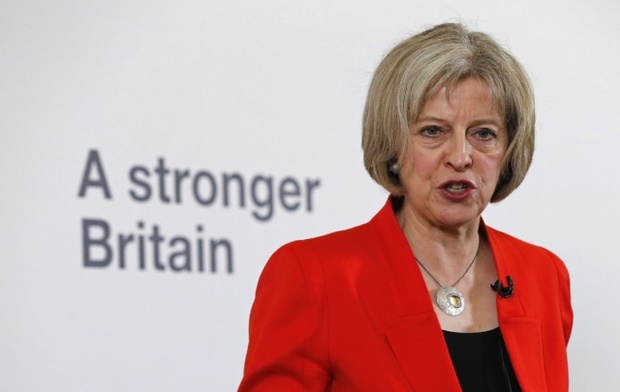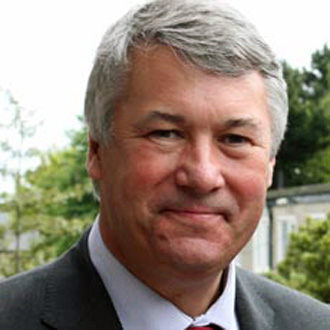Graham Timmins: ‘I don't think anybody had seriously predicted he would be given such an important position’
A British political expert tells about Brexit, possibilities of the PM to become a new Thatcher and an extravagant Foreign Secretary
Dr Graham Timmins who works in the Department of Political Science and International Studies at the University of Birmingham expressed his point of view on the new government of Great Britain. His outlook is different from the opinion given by the specialist in Intelligence and International Security Robert Dover. For instance, he thinks Theresa May cannot become the second Margaret Thatcher and all the UK citizens are watching to see how Boris Johnson equips himself as the new Foreign Secretary.
Mr Timmins, these days the EU softened its policy towards Great Britain. So, the president of the European Parliament Martin Schulz said: 'The UK should not be treated as a deserter but as a family member who is still loved but has decided to go in another direction.' Do you expect Theresa May to correct the mistakes of Brexit, that is to say, turn the face towards Europe?
'I think Theresa May will have a very level-headed, sensible approach towards ensuring the business relationships, the political relationships are stabilised.' Photo: birmingham.ac.uk
I think that Theresa May is a very pragmatic politician. What she has said is that 'Brexit means Brexit'. If we analyse what that statement means, what she is saying is that she will be seeking to get the best deal for the UK outside of the European Union. It's worth remembering that Theresa May was very quiet during the Referendum Campaign. And probably her personal sentiments were for 'remain' rather for 'leave'. I think she recognises the importance of the European Union to the UK. Her approach will be to get the best deal from a very pragmatic perspective.
In terms of the relations with Russia, the new PM has a constructive position. She thinks they should work closely with Russia, including in Syria. Is it a good sign? Is not it a populist statement made in order to tease European sceptics?
The UK and Russia haven't had the best relationships in recent years in terms of bilateral context. I think that's extremely unfortunate. David Cameron before Theresa May talked about developing a much more constructive relationship with Russia that is based on mutual interests. I think Theresa May will be seeking to develop a constructive, a pragmatic approach towards Russia, towards China, towards America, towards India, to all the big international actors in the world today. I don't think we can expect anything too surprising. I think Theresa May will have a very level-headed, sensible approach towards ensuring the business relationships, the political relationships are stabilised.
'Theresa May is a one-nation conservative'
Is Theresa May able to minimise possible losses of the British people because of Brexit in practice?
We don't know at this stage what the implications are for EU citizens working in the UK. I think there will be a sensible resolution to this situation. Let's not forget that there are more British citizens working in the European Union, in other member states of the European Union. I think taking a hostile approach towards EU citizens working in the UK would be a very damaging policy in terms of UK citizen interests in other EU member states. I suppose there will be a deal.
Does she have a potential to become the second Margaret Thatcher? Some newspapers tell about the second Iron Lady.
I don't think Theresa May would welcome that comparison. I know certainly when Angela Merkel became Chancellor in Germany, she was very resistant to being compared with Margaret Thatcher. And Angela Merkel's argument was 'just because we happened to be women doesn't mean we are the same kind of politicians'. It's a very simplistic position to take. It's like saying that all men are the same. All women are not the same.

'She is a one-nation conservative. In many respects, she will have similar policies to for those pursued by Margaret Thatcher. But I think we will see a different style of politics.' vestifinance.ru
From what we've heard so far of Theresa May's policies, she is a consensus politician. I think she will be doing her best to bring together the two sides of the referendum debate, to find a way of reconciling the interests of those people in Britain who wanted to remain in the EU and whose who wanted to leave.
Margaret Thatcher was a very polarising politician. She was very much about conflict politics rather than consensus politics. So, I think judging from what Theresa May has said so far, I think clearly she is a conservative. She is a one-nation conservative. In many respects, she will have similar policies to for those pursued by Margaret Thatcher. But I think we will see a different style of politics. But, of course, all remains to be seen.
'It was certainly a surprising appointment'
Is former Mayor of London Boris Johnson's new post likely to change the relations between our countries?
Well, I think all people were very surprised by the appointment of Boris Johnson as Foreign Secretary. He is an unknown quantity. This is the first time that he has held a governmental position. I think the diplomatic response to that question is that everybody in the UK is watching with interest to see how Boris Johnson equips himself as the new Foreign Secretary. It was certainly a surprising appointment. I don't think anybody had seriously predicted that he would be given such an important position in the government.
It will be interesting for us to follow the news from the UK as well.
I think the UK politics is going to be very interesting for many years to come.
Thank you for your answers!
Reference
Dr Graham Timmins works in the Department of Political Science and International Studies at the University of Birmingham. He serves as Director of Education, School of Government and Society and Senior Lecturer in International Politics. He holds a BA (Hons) in Russian and Soviet Studies (Portsmouth Polytechnic, 1986), MPhil in Soviet and East European Studies (University of Glasgow, 1991) and PhD in Political Science (University of Huddersfield, 1997).
Dr Timmins is a specialist on European integration with a particular focus on the external relations and foreign policy role of the European Union. He wrote articles on the EU-Russia and German politics, and was awarded the honorary title of Jean Monnet Professor in European Integration Studies by the European Commission in 2002.
Mr Timmins was a joint co-ordinator of the EU-Russia Collaborative Research Network funded by the University Association for Contemporary European Studies (UACES) and the British Association for Slavonic and East European Studies (BASEES) during 2006-2012, and is a member of the National Advisory Board for Europe-Asia Studies and of the editorial committee for the BASEES/Routledge Series on Russian and East European Studies.
He fluently speaks Russian. Dr Trimmins is the author of such books as Russia and Europe in the Twenty-First Century: An Uneasy Partnership (co-editor Jackie Gower, 2007) and The European Union, Russia and the Shared Neighbourhood (co-editor Jackie Gower, 2010).
